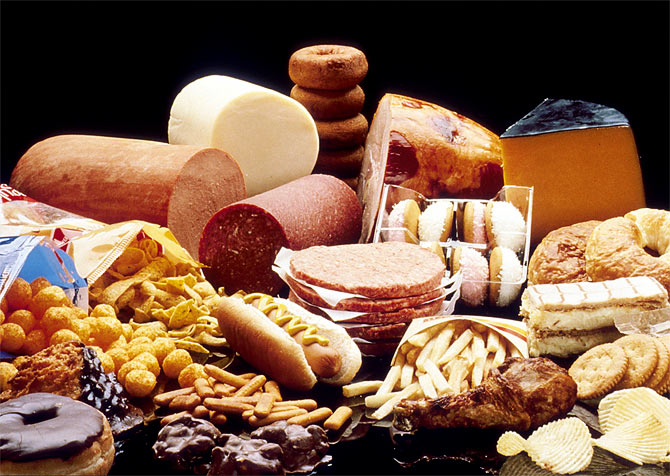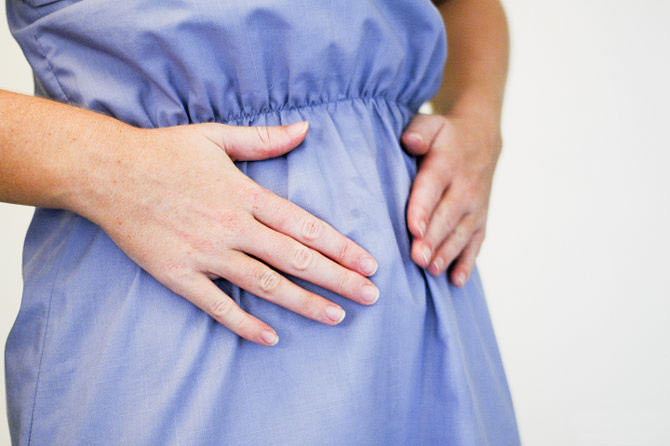 | « Back to article | Print this article |
When too much fibre is bad for your body
Intake of excessive fibre can lead to electrolytic imbalance, fatigue, excessive gas, inflammation of the intestinal tract indigestion and acid reflux.
Fibre is touted as a miraculous stuff that can do wonders not just with weight control but also with your overall health. Every food item -- from biscuits, to cereals, even cooking oils -- are using loud speakers to announce the high fibre content in their products. Then, of course, spooning in fibre must be the best thing you did to your body.
Nobody is talking of moderation or circumspection. But perhaps it may be the time to do just that, advises Shameem Akthar, yogacharya trained with the Sivananda Yoga Vedanta Center.
She offers circumstances when too much of a good thing can be actually bad. And why, it is best to understand what you wish from your fibre-intake before you go rushing into self-prescribe.
After fasting or certain sickness
Fibre can be absolutely dangerous after any fasting, whether it be for religious/spiritual reasons or due to circumstances (as while travelling and missing meals) or forced due to some illness which does not allow you to retain food (as with vomiting/loose motions).
In this instance, fibre can tilt the electrolyte balance, send the food moving too fast through the digestive tract, and aggravate or compound existing symptoms.
In fact, in religious fasting or de-toxification fasting it is wrong to consume fibre-rich foods. Only stuff like khichdi (white rice/moong dal with lots of ghee) is advised in this case.
Eating fruits or raw foods, or high-fibre grains would be foolhardy. Soft, well-cooked food, with easily-absorbable starch would be ideal to help the stomach recover.
When too much fibre is bad for your body
In weight loss
Over-enthusiastic embrace of only-fibre food can be as bad as eating only protein-rich food.
In the former, due to the already reduced intake of starch, the food will move too fast through the digestive tract, and may lead to malabsorption states, where the nutrients are not given a chance to be absorbed.
This could lead to skin eruptions. But amongst the first symptoms of danger would be uncontrollable hairfall, indicating malabsorption.
You are also likely to feel weak and more easily fatigue, again because the food is moving too fast to give the energy it is meant to. Certain amount of absorbable starch which helps to hold the food down till everything gets a chance to be digested, absorbed and excreted in its own proper time is very important.
When too much fibre is bad for your body
Flatulence
If you are prone to anxiety (one of the main causes behind excessive flatulence) then too much fibre is not what even your doctor prescribed for you!
Fibre by its very nature encourages wind in the tract. When the amount is suddenly increased or when other circumstances contribute to flatulence (as in high-stress states), then it would be advisable to go easy on the high-fibre foods.
It is best to introduce fibre foods gradually, so that your digestive system is acclimatised to it. A sudden high intake will have the inevitable result of make you gassy and uncomfortable. You may also get stomach cramps from this!
When too much fibre is bad for your body
Rectal bleeding
When the fibre content is over advisable recommendation (according to certain health experts there seems to be a major confusion over how much is good or bad even today) then it will cause excessive gas, inflammation of the intestinal tract, large stools that overload the delicate excretory canal and may lead to bleeding.
Cramps, gas, a feeling of nausea, or even vomiting could mean that your gut is not happy with too much fibre. Moderation or understanding the nature of your fibre and how well balanced it is, with the rest of your plate is very crucial to avoid this rather common problem.
When too much fibre is bad for your body
Acid reflux and other digestive tract problems
As stated earlier, when there is an overload of fibre in the stomach, it causes indigestion, which in turn can cause the chronic silent acid reflux, because the body is unaware of the upward swing of stomach acids through the esophageal passage.
It can cause sore throat, dry coughing, and inflammatory conditions which can be debilitating. A host of other problems of the digestive tract can be caused by wrongful consumption of excessive fibre: even constipation (when there is not enough fluids to propel the expanded volume of food), vomiting, hernia, several inflammatory conditions, aggravation of ulcers, hemorrhoids (especially in the elderly whose digestive tracts may be weaker), amongst various others.




